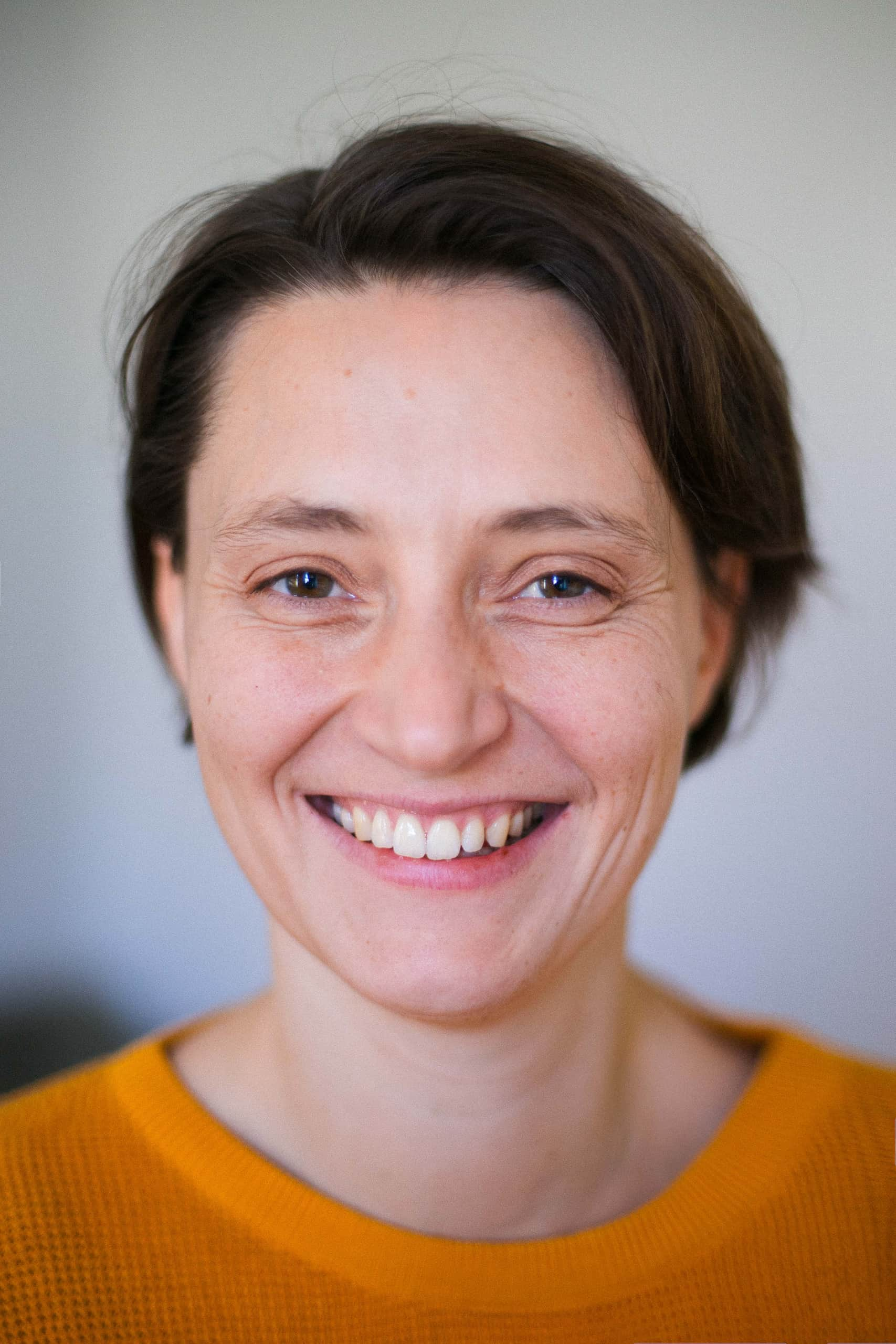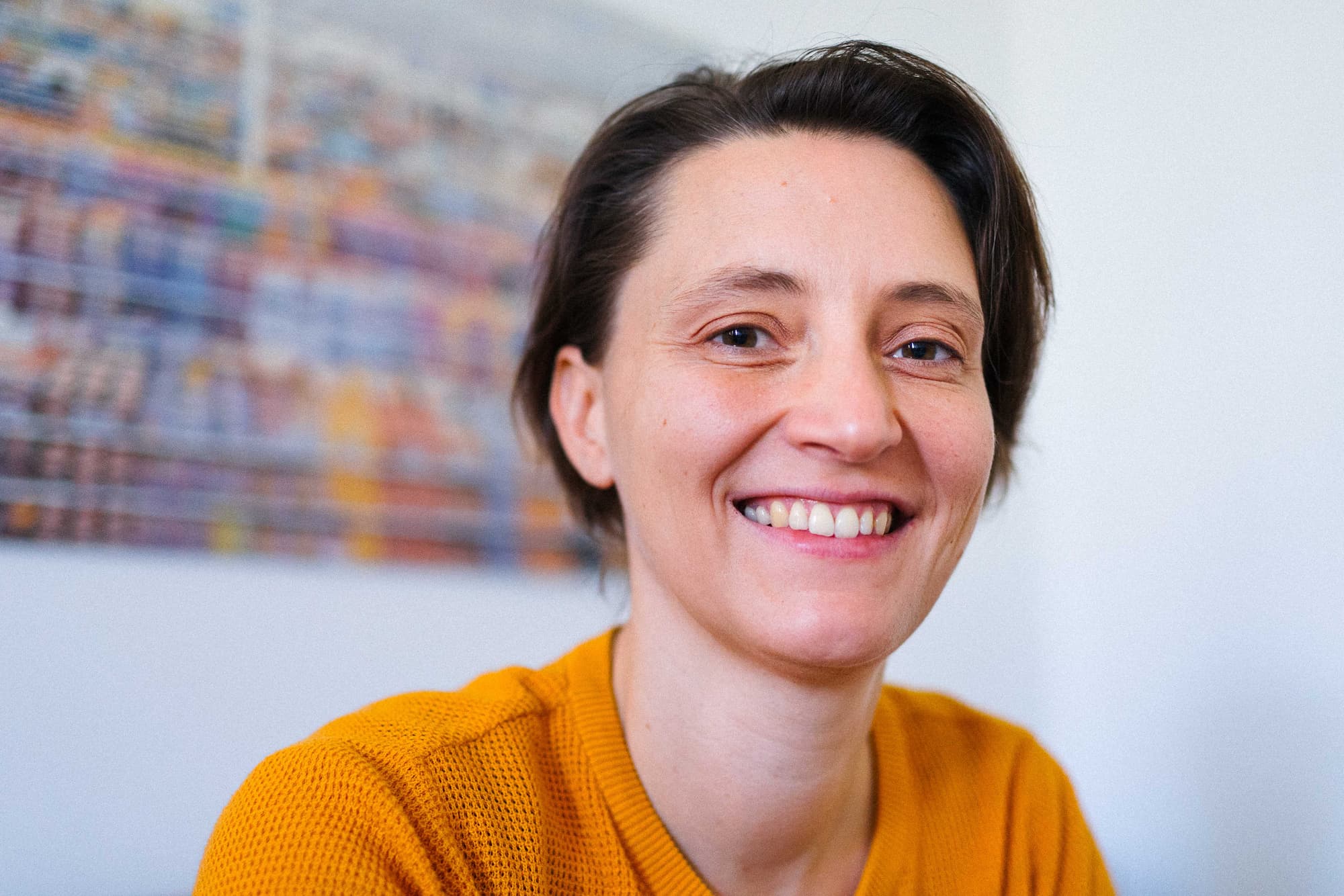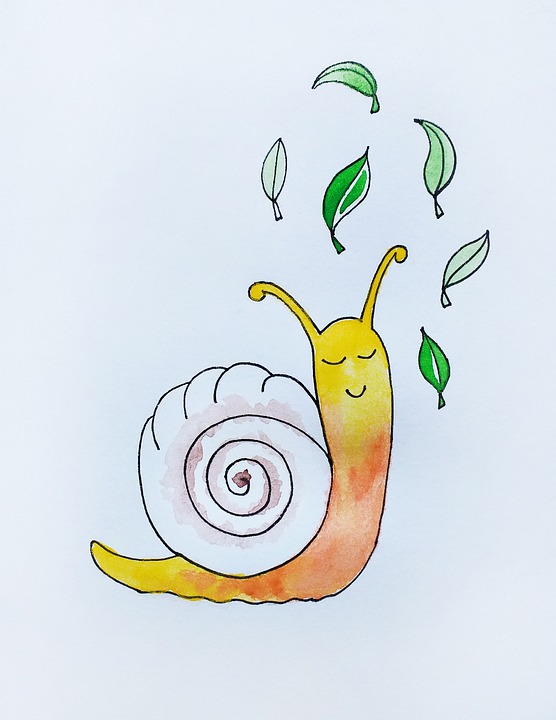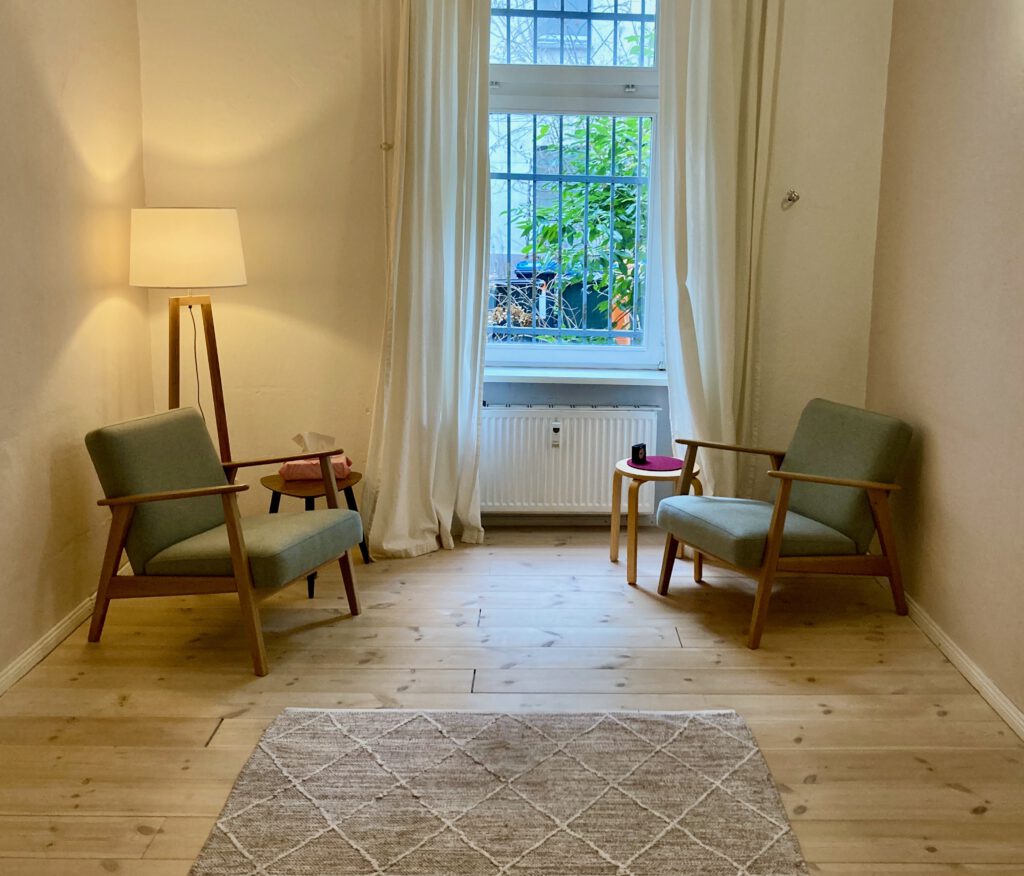Gestalt- and
body therapy
holistic
trauma-aware
sensitive to discriminiation

exhale sense connect
My Approach
With compassion, mindfulness, and a curiosity for exploration, I accompany you in discovering paths to healing. I meet you with respect and trust in your innate ability to find your way, even if it currently feels hidden or blocked.
In therapy, I encourage you to slow down and tune into your thoughts, emotions, and physical sensations in the present moment. In a safe and accepting space, all feelings are welcome – grief, anger, shame, fear, pain, or even numbness. By allowing these emotions to exist without judgment, new perspectives and possibilities can emerge.
Through mindful body awareness, we explore what your body communicates. Where is there openness? Where is there tension? Using breath, movement, and voice, we can help release what feels stuck and allow for greater flow and connection.
Depending on your needs and preferences, therapy may include conversations, working with inner parts, imagery, dreams, role-play, constellations, or body-centered exercises.
As challenging as it may be to open up, to look within, and to feel – the therapeutic process can also bring joy.

My Qualifications
Four-year training in Integrative Gestalt Therapy with a focus on body-oriented methods (TIB Berlin)
Training in group facilitation
Two years of psychosocial counseling and coordination at a lesbian initiative
Master’s degree with a focus on adult education and working with death, dying, and grief (Evangelische Hochschule Berlin)
Additional training on forms of discrimination (anti-racism, gender and sexual diversity, disability, social status)
Extensive experience in the theater, film, and performance sectors, with a focus on collective processes
More about my qualifications
My four-year training in Gestalt therapy included not only Gestalt therapeutic approaches but also body-oriented methods and work with traumatic experiences.
I am particularly fascinated by how integrating the body opens new ways of experiencing and feeling. Through my work as a psychosocial counselor at a lesbian initiative, I have gained experience in counseling women and queer individuals of various ages, from 20 to 80 years old, in different life situations. This work has allowed me to build good connections with other counseling services and support systems, offering my clients access to additional resources. I am aware that suffering often arises from societal imbalances and discrimination, and I integrate this dimension into my work. Beyond individual therapy, I find that group exchange is particularly healing, as it allows us to feel the collective dimension of our issues and experience shared understanding. My life journey led me through work in the theater, dance, and performance sectors, where I developed creative ways of exploring collective themes within a group. I draw inspiration from this experience, which I bring into therapeutic groups and seminars. I am committed to continuous professional development (starting in 2025, I will be pursuing training in Ego-State Therapy) and regularly seek supervision and peer supervision. I am a licensed therapist authorized to practice psychotherapy. (Heilpraktikerin für Psychotherapie) My expertise includes differential diagnoses, psychotherapeutic methods, crisis intervention, and legal regulations.No need to do anything
slowing down
Contact
Mia Sellmann
+49 176 – 21580391
kontakt@miasellmann.de
Please note that sensitive personal data should not be sent via email for data protection reasons.
Costs
Therapy session (60 minutes): 90 €
As a licensed alternative practitioner for psychotherapy (Heilpraktikerin für Psychotherapie), I am unable to bill statutory health insurance.
As a self-payer, you have the option to choose whether you wish to come regularly for a longer period to work on deep-seated issues or if you would like my support for targeted, short-term guidance.
Practise rooms
Raum und Bewegung
Pflügerstraße 78b
12047 Berlin
and
Therapiekollektiv
Hohenfriedbergstrasse 10a
10829 Berlin-Schöneberg
My practice rooms are located in quiet shared practices on the ground floor in Neukölln-Kreuzberg and Schöneberg. Unfortunately, the restrooms are not barrier-free.


try out
small steps
new paths
Questions and Anwers
What is the process?
Getting Acquainted
At the start of a longer therapeutic process, the focus is on getting to know each other. Together, we will discuss your concerns and explore how therapy can support you.
In 2–3 case history sessions, we take the time to reflect on formative life events and strengthen your resources. Initial ideas about recurring patterns, key themes, and existing coping strategies will begin to emerge.
The goal is to understand which dynamics are at play in your life and how they may influence you positively or present challenges. The emphasis is on an open dialogue where I share my observations transparently, and together, we delve into the particular aspects of your life story.
Connecting with the Here and Now
Gestalt therapy is about repeatedly coming into contact with the here and now and noticing the thoughts, feelings, and physical sensations that arise. This mindful awareness allows space for new insights, understanding, and self-compassion to develop.
We often have habitual ways of responding to stress, whether through grief, anger, or shame. Recognizing these patterns, exploring what lies beneath them, and giving space to less familiar emotions can be profoundly healing.
Exploring and Forming
As therapy progresses, we work together to explore ways to create new pathways through your body, your environment, and your lived experiences.
We develop an individual approach that helps you deepen your awareness and connection. Your active participation is essential to this process – your curiosity and desires are just as important as my therapeutic methods.
This collaborative approach also allows us to gently examine the more challenging areas of your life. My aim is to provide a therapeutic experience that fosters joy in exploration, even when confronting the shadowy or difficult aspects of your journey.
What matters can I bring to the the practice?
- You’ve already understood a lot, but it hasn’t yet reached your body or actions.
- You want to understand and change recurring reaction loops.
- Fears and worries, anger and rage, emotional numbness, and difficulty grieving.
- Feelings of shame and guilt.
- Resignation, hopelessness, stress, burnout.
- Separation, experiences of loss, complicated grief, loneliness, dealing with illness and mortality.
- Questions of meaning and the search for a vision.
- Psychosomatic symptoms and chronic pain.
- Unfulfilled love, relationship problems, and questions about sexuality.
- Experiences of violence and discrimination.
- Specific support for LGBTQIA+ issues.
- Curiosity about experiential therapy and a desire for more joy in life and inner clarity.
- You haven’t found a therapy place covered by insurance yet and need support in the meantime.
Why Therapy?
Therapy offers the opportunity to regularly set aside time and space for yourself to gain a deeper understanding of your thoughts and feelings. It’s about cultivating mindfulness and recognizing when you might be standing in your own way or losing connection with yourself.
Therapy is not only about treating illnesses but also about personal growth. The distinction between „ill“ and „healthy“ is often not clear-cut. Whether someone stuck in an unhappy situation or suppressing emotions is considered „ill“ is relative. Everyone faces challenges in life that can lead to personal crises, and therapy provides a space to address these issues holistically.
Therapy doesn’t always have to be long-term. In acute life crises, such as after a breakup or loss, it can offer valuable support. It can also help when seeking change in a stagnant situation.
How Does Gestalt and Body Therapy Help?
The most important step toward change and greater self-understanding happens the moment you decide to begin therapy.
In Gestalt and body psychotherapy, the focus is on building a foundation for better self-awareness and understanding. The process emphasizes breaking free from old emotional habits and patterns that are often linked to inner conflicts or tension. Through conscious awareness, connection with the body, and intuition, clients gain greater clarity about their internal processes. This allows blockages and inner conflicts to become visible and to be resolved.
The therapeutic space offers an opportunity to connect with yourself while also receiving external impulses. Throughout the process, each person remains self-responsible and determines their own path. This approach nurtures awareness of personal needs and supports overcoming fears, shame, and insecurities.
Step by step, Gestalt and body psychotherapy fosters greater authenticity and a clear, self-determined way of living. The goal is to move out of a state of confusion or overwhelm and into a place of empowerment and action.
Where does the term Gestalt therapy come from
The term „Gestalt“ in Gestalt therapy means „form,“ „shape,“ „wholeness“ or „a complete picture.“ Often, we carry experiences or emotions within us that are not yet „finished“ because we haven’t fully perceived or processed them. These unfinished Gestalt can be burdensome in daily life and unconsciously influence us.
This idea originally comes from Gestalt psychology, which emerged in Germany in the early 20th century and studied the concept of human perception.
The fundamental assumption of Gestalt psychology is that humans do not perceive their surroundings as isolated, individual pieces of information, but rather as organized, interconnected Gestalt or patterns. This approach was adopted by Gestalt therapy, developed in the 1940s by Fritz Perls, Laura Perls, and Paul Goodman. The goal of Gestalt therapy is to help people see their experiences as complete Gestalt – meaning as a whole consisting of thoughts, feelings, bodily sensations, and actions.
Thus, the term Gestalt emphasizes experiencing the here and now and the wholeness of human experience.
What does "discrimination-sensitive" mean?
In my practice, it is important to me that you feel accepted in your full identity. I make sure to take your individual experiences and challenges seriously, without judgment, and approach topics that may be amplified by social inequalities or prejudices with respect. Together, we work on understanding these burdens and finding a path to greater self-determination and inner strength.
Was does "trauma-aware" mean?
I am aware that it takes time and patience to name and process difficult experiences. I approach your needs with empathy and mindfulness, always respecting your pace and boundaries. Together, we can work on integrating what has been experienced and gradually developing more stability and inner strength.